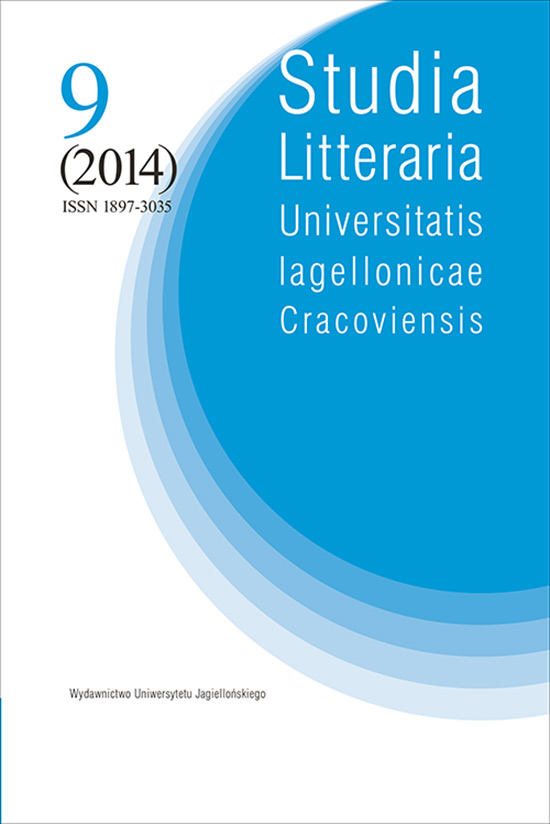Per deam Partulam et Pertundam nunc est bibendum! Kilka uwag o małych bogach w kontekście czternastego epizodu Ulissesa Jamesa Joyce’a
Per deam Partulam et Pertundam nunc est bibendum! Some Remarks on the Small Gods in the light of the Fourteenth Episode of James Joyce’s Ulysses
Author(s): Justyna MigdałSubject(s): Language and Literature Studies, Studies of Literature
Published by: Wydawnictwo Uniwersytetu Jagiellońskiego
Keywords: James Joyce; Roman mythology; Modernism and Myth
Summary/Abstract: The “Oxen of the Sun” episode contains a brief mention of two little-known Roman goddesses of child-bearing and procreation. The present paper traces the ancient descriptions of “small gods”, particularly those associated with child-bearing and rearing, and their importance in Roman religion. It is argued that Malachi Mulligan, by alluding to eons of gods, evokes in this episode the concept of the universe filled with an infinite multitude of divinities, and thus stands in opposition to Stephen Dedalus, who argues for the presence of one all-father. A similar opposition was noticeable in the Roman religion (the process of major gods “absorbing” the smaller ones).The allusion to the small gods also serves as a transition between the “Oxen of the Sun” and “Kirke” episodes: Partula, the goddess of birth, is firmly associated with the former episode, while Pertunda, the goddess of (broadly speaking) sex, with the latter. The Latin invocation to the goddesses ends with the Horatian phrase “nunc est bibendum”, an exhortation to drink: it references the “victory” of Mina Purefroy over death (i.e. the content of the current episode) and introduces the subject of drinking and revelry, which is to follow.
Journal: Studia Litteraria Universitatis Iagellonicae Cracoviensis
- Issue Year: 9/2014
- Issue No: 4
- Page Range: 257-263
- Page Count: 7
- Language: Polish

